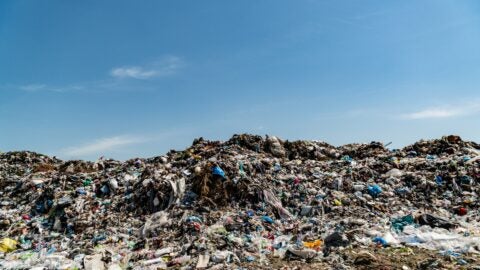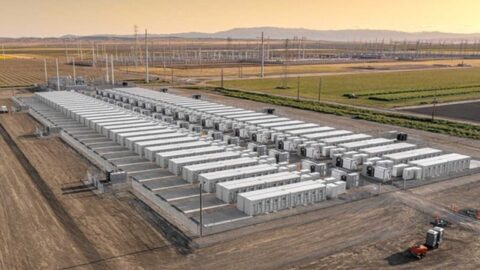California Retirement Funds Put $500 Billion Worth of Weight Behind Strong Methane Standards
 Today, a group of major investors from across the country, who manage more than $1.5 trillion in assets, issued a letter calling for strong rules to limit harmful methane emissions from the oil and gas sector. Among them are California’s two biggest retirement funds – CalPERS and CalSTERS, which together manage nearly $500 billion in funds on behalf of approximately one and a half million members.
Today, a group of major investors from across the country, who manage more than $1.5 trillion in assets, issued a letter calling for strong rules to limit harmful methane emissions from the oil and gas sector. Among them are California’s two biggest retirement funds – CalPERS and CalSTERS, which together manage nearly $500 billion in funds on behalf of approximately one and a half million members.
The powerful statement issued by the group of investors calls out the “serious threat” methane poses to climate stability, saying that it compelled them to support action on the issue to avoid near term threats to “infrastructure and economic harm that will weaken not only the companies we invest in, but the nation as a whole.”
California’s Leadership Role
Although the investors’ letter focuses on national rules, the relevance to California cannot be overlooked as the state has, over the past year, taken a leadership position on regulating harmful methane emissions from oil and gas operations. For example, California is currently developing new rules at the California Public Utilities Commissions (CPUC) to reduce methane emissions in the natural gas supply chain, and a new statewide plan and regulations are being developed at the California Air Resources Board (CARB) to limit methane emissions from oil and gas production.
The federal government has recognized the need to address the issue as well, announcing in January a goal to reduce methane emissions from the oil and gas industry 40 to 45 percent in the next ten years. The Environmental Protection Agency (EPA) and Bureau of Land Management (BLM) will propose rules this summer to support that goal, and this letter from investors is just one more call to make those rules as strong as possible.
Economic and Environmental Impacts
As highlighted in the investors’ letter, regulating methane emissions has an economic impact – since natural gas is made up mostly of methane, methane leaks represent a waste of a valuable energy resource. In California alone, oil and gas operations emitted 136,489 metric tons of methane in 2012, enough to power almost 160,000 homes.
And methane’s environmental impact also has implications for the economy – methane is a potent greenhouse gas, with more than 84 times the warming power of carbon dioxide in the first 20 years after it is released, and it is responsible for 25 percent of the warming we’re feeling today. Outside of just the waste it presents, investors recognize that methane’s contribution to the changing climate has real costs for business operations. As the investors state in their letter, the near term warming impacts of methane “[threaten] infrastructure and economic harm that will weaken not only the companies we invest in, but the nation as a whole.”
A Need for Strong Rules in California
These impacts present a strong argument in favor of continuing the state’s leadership on the issue. California must not only push for strong national efforts to solve the problem, but also to keep up the momentum behind its own efforts. As the CPUC and CARB develop rules to curb methane emissions, they must consider the most effective strategies to implement, providing a robust model for other states and the federal government.
For example, leak detection and repair is one of the most critical tools for reducing methane emissions – requiring frequent monitoring and repair programs is key to creating rules that makes a significant impact. And California regulators must also consider that California imports nearly 90 percent of its natural gas – to truly make a dent in climate change, California must take responsibility for gas it uses that is produced outside of its own borders.
California’s government leaders have recognized the importance of reducing methane. Now, with CalPERS and CalSTERS also stepping up to speak out against the problem, it’s clear that the state’s investors do as well. To keep California strong both environmentally and economically, it is critical to put in place the strongest rules possible to reduce this harmful, costly pollutant.













